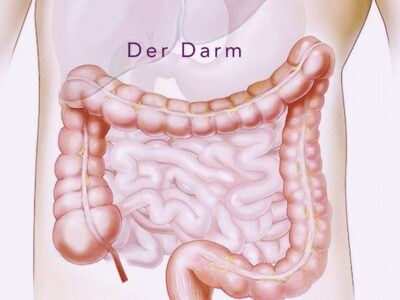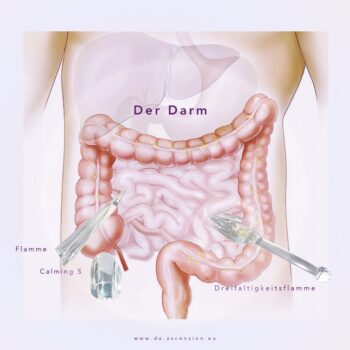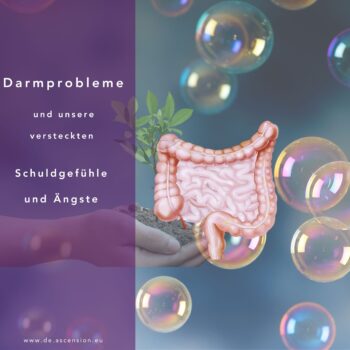Bowel problems and feelings of guilt
The intestine and the psyche. The intestine as such represents the processing, the digestion of material and physical impressions, of emotions and thoughts, and the ability to let things flow. In its optimal, divine function, we have no need to control anything. We feel safe and trust in the flow of life. The entire life is reflected in the intestine, from birth to death. Its peristalsis symbolizes the principle of holding on and letting go, giving and taking, inhaling and exhaling.
Structure of the intestine
The intestine extends from the pyloric sphincter to the anus and is divided into the small intestine and the large intestine.
- The small intestine is the site of analysis, integration, and processing of impressions, feelings, and conflicts. According to Dr. Klinghardt, in a disharmonious state, it represents feelings of loneliness, feeling lost, abandoned, rejected, not being liked, not being important, shock, grief, worry, sadness, lack of self-confidence, self-hatred, and insecurity.
- The large intestine is the site of the unconscious and the place where decisions are made. In a disharmonious state, it represents dogmatic thinking, feelings of guilt, fear of survival, lack of basic trust, mistrust, existential anxiety, perfectionism, control, pedantry, stinginess, ruthlessness, and feelings of imprisonment.
The gut also represents living in the shadow of oneself and yet wanting to live. Having a weak attitude toward one’s own self, one’s own self, which is reflected in self-confidence, self-love, and inner strength.








